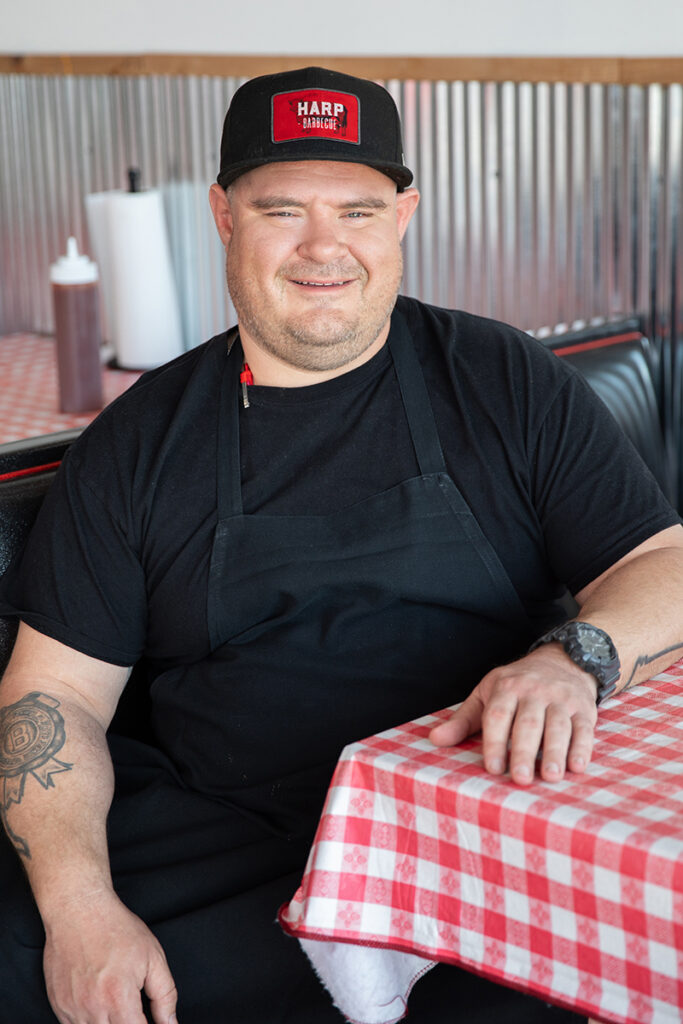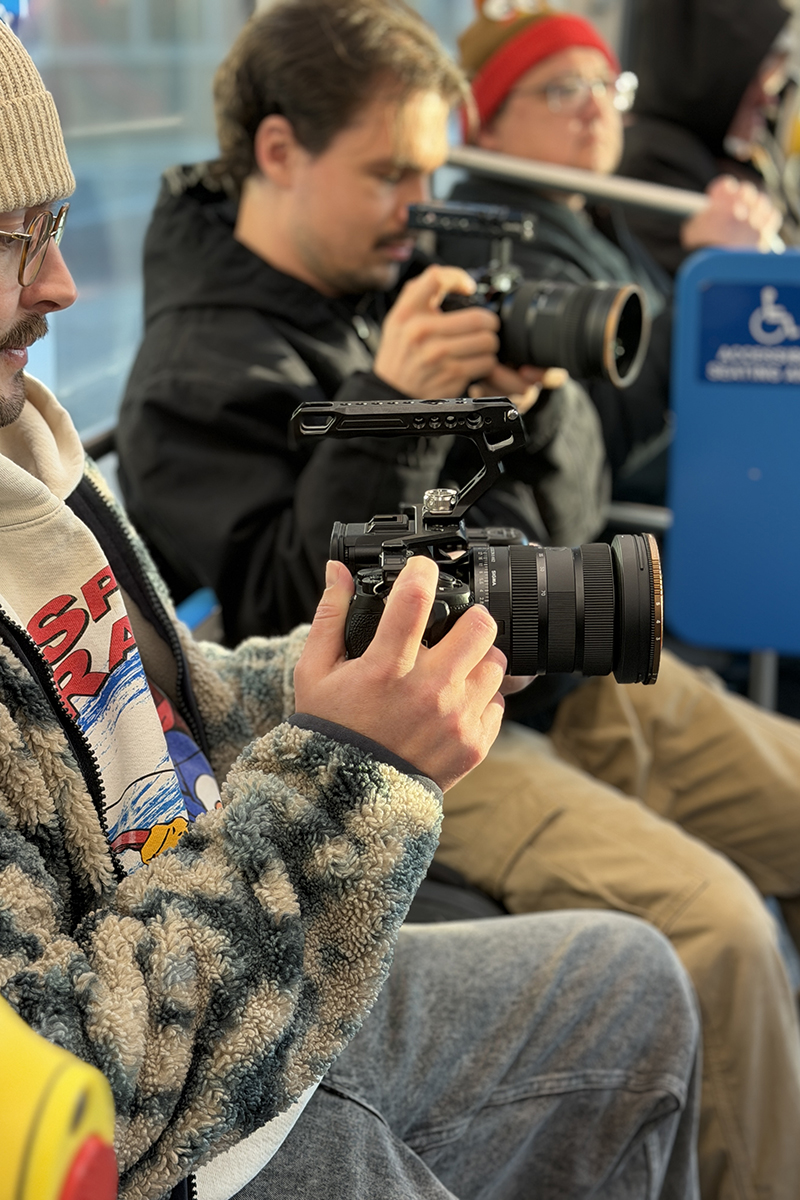Food is love. Just ask Jyoti Mukharji.
“In India, we don’t express our love in words,” she says. In the Western world, Mukharji explains, everybody says I love you. “You tell your parents that. You tell your friends that. You tell your children. In India, nobody talks that way. It’s never expressed in that way. The way love is expressed is through food.”
Love is a set of actions, in other words, with the cooking and sharing of favorite foods being among the most intimate and vital.
Seventy-one-year-old Mukharji explains this in her Uttar Pradesh accent right before one of the wildly successful cooking classes she holds in her red brick Prairie Village home. The interior of the house is warm and welcoming. The foyer is stuffed with houseplants, and the walls are adorned with a mix of Indian artifacts and traditional western decor. Wearing a pale purple top beneath her black apron, Mukharji leads me to a clean and spacious kitchen. Her dark hair is streaked with gray. The day’s ingredients are organized on a big, granite-topped center island.
A half dozen women and one man—students all—share the space. Her classes, though, are often much larger. Recently, she hosted a single class of 23 souls.
The popularity is understandable. It’s a charming, fulfilling experience. Mukharji starts class with a bit of personal history. Then she might explain the differences between green and black cardamom or how to know when cooking oil is hot enough to fry with. Maybe she hands out curry leaves for students to sniff and chew. Maybe she demonstrates the preparation of Bharva Murgh Tangdii, a spicy stuffed drumstick, or Badshah Ka Korma, her chicken and potato curry. As a side dish, you might get Jeera Mutter (peas seasoned with cumin and ginger).
It’s glorious, smart stuff—a mix of restaurant staples, regional favorites and Mukharji originals. There’s an almost symphonic progression in her mastery of India’s regional flavors. The savory, spicy, salty and sweet tastes rise and fall on the palette like the strings, horns, woodwinds and percussion of a finely balanced orchestra.
Mukharji, however, prefers a choreography metaphor. “Your tongue,” she tells me, “should be dancing with every dish that you try.”
She started leading that dance more than 20 years ago. “I always had a passion to teach,” she says, but life came first. She went to medical school, started a pathology practice, got married and had children. She left medicine in 1987, though, to care for her three boys, including one with a disability. “I wanted to make sure that I was on his team.”
More than two decades later, she started teaching—an occurrence she repeatedly describes as “a fluke.”
In 2009, Mukharji was involved in an organization called, at the time, Head Start (now known as Growing Futures Early Education Center). “I was on the board and used to donate an Indian dinner for eight to the silent auction.”
One year, though, a friend and fellow board member also wanted to donate a dinner. “She came to me and said, ‘Instead of us doing two dinners, why don’t you do a cooking class?’”
A teaching star was born. Or maybe a teaching Buddha.
“The day I did my first class, it was like I had achieved Nirvana,” she says. “My passion to cook and my passion to teach just came together.”
Since then, she’s taught an astonishing number of students. Despite zero advertising and no social media presence, more than 6,000 people have learned from her over the years—with many returning again and again.
“I have a lady who has done 94 of my classes,” Mukharji says.
If you don’t have time to take 90-plus classes, though, fear not. You can still taste her passion. Mukharji, along with one of her sons, has written a cookbook.
In keeping with her meticulous nature, the book took seven years to write. Called Heartland Masala, Mukharji says it’s a “300-page cookbook with 100 recipes that have been thoroughly researched,” replete with recipe origin stories.
Her middle son, Auyon, an accomplished musician and visual artist as well as a culinary historian, provided illustrated vignettes for the tome.
Heartland Masala comes out in September. For now, though, Mukharji’s on to her next class.
“I’ve been doing it for 15 years, and as I’m getting older, instead of it wearing me out and me burning out, I’m getting more invigorated doing it,” she says. “It just gives me so much gratification, so much happiness to see the smiles on the faces of the people who come and who enjoy the experience.”
She definitely isn’t in it for the money. All the proceeds from her classes go to local nonprofits, including Growing Futures, Gift of Life and Friends of Chamber Music. In other words, just like the Indian culinary culture she celebrates, Mukharji shares her food as an expression of love.
To learn more about Mukharji’s cooking class or to preorder an autographed copy of her book, email jmukharji@gmail.com. The book can also be preordered on Amazon or at Barnes and Noble.
Classic KC ’Cue with an Indian twist

Known for his uniquely eclectic approach to creating classic ’cue, Tyler Harp of Harp Barbecue has quickly become a KC BBQ scene legend. He recently moved his Raytown restaurant to southern Overland Park (12094 W. 135th St., OP), where a large contingent of Indians have settled, and he has begun to experiment with barbecue-Indian fusion offerings, like an andouille sausage with tandoor flavor and turmeric.
“Southeast Asian food, outside of barbecue, has honestly been my biggest passion,” Harp says. “For the most part, our barbecue is more savory, so I think it works with Indian spices.”
Harp has created tandoori chicken skewers for lunch and is working on a prime rib using different Indian spices for dinner. “So the prime rib will be seasoned with salt, garlic and pepper, but then we’re also going to go with spicy curry powder, some turmeric and tandoori with that as well,” he says. “Some bold, good flavors. You got to figure out what sells and what people react to and what people want.”





